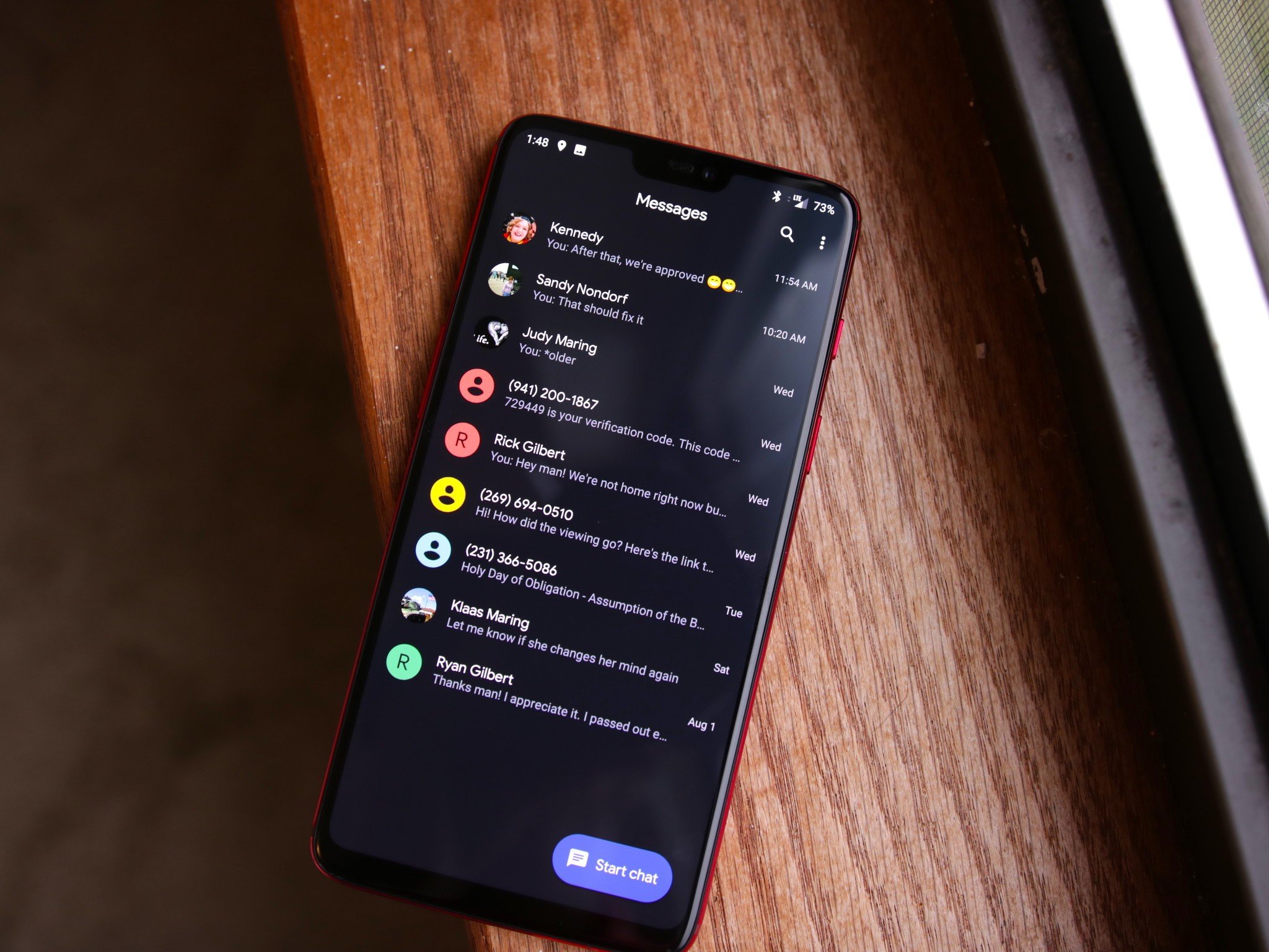The carriers will announce more details regarding the Cross-Carrier Messaging Initiative (CCMI) at a later date.
What you need to know
- All four major U.S. carriers have joined hands to replace SMS with RCS.
- The Cross-Carrier Messaging Initiative (CCMI) will be bringing RCS to Android phones in 2020.
- CCMI will be rolling out a new Android app that will be the default messaging app on Android phones sold by major U.S. carriers.
The four major U.S. carriers – AT&T, Sprint, T-Mobile, and Verizon have announced the creation of a new joint venture to replace SMS with GSMA's Rich Communications Service (RCS) standard. The Cross Carrier Messaging Initiative (CCMI) join venture is working to deploy the RCS-based interoperable messaging service by next year.
Working with its carrier ownership group and other companies in the RCS ecosystem, the CCMI service will:
Drive a robust business-to-consumer messaging ecosystem and accelerate the adoption of Rich Communications Services (RCS) Enable an enhanced experience to privately send individual or group chats across carriers with high quality pictures and videos Provide consumers with the ability to chat with their favorite brands, order a rideshare, pay bills or schedule appointments, and more Create a single seamless, interoperable RCS experience across carriers, both in the U.S. and globally
Speaking to The Verge, Doug Garland, general manager for the CCMI, revealed that the joint venture plans to bring out a new Android app next year. The app is expected to be the new default messaging app for Android phones sold by the major U.S. carriers.
It will have support for all the standard RCS features such as typing indicators, media file attachments, and group messaging. Additionally, Garland confirmed that the app will be compatible with the global "Universal Profile" RCS standard that most carriers around the world have adopted.
Weirdly, the joint press release issued by the four carriers does not mention Google even once. Google, which has been the biggest proponent of the RCS standard, recently started offering RCS features to Android users in the United Kingdom and France directly, instead of waiting on carriers. Garland, however, told The Verge that Google remains an ecosystem partner and that the release was mainly focused on the carriers. Shortly after the joint press release went out, Google issued the following statement:
We remain committed to working with the Android ecosystem to further enhance the messaging experience on Android with RCS. It's great to see U.S. carriers getting behind RCS in a meaningful way and we look forward to continuing to work with them to bring modern messaging to everyone on Android.

Tidak ada komentar:
Posting Komentar